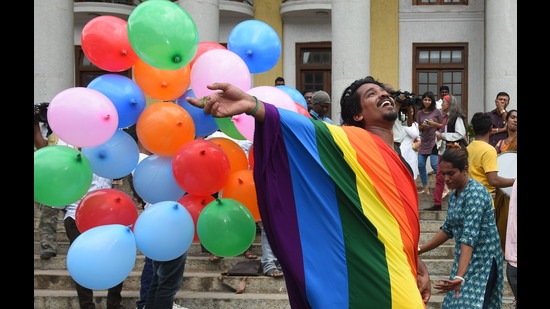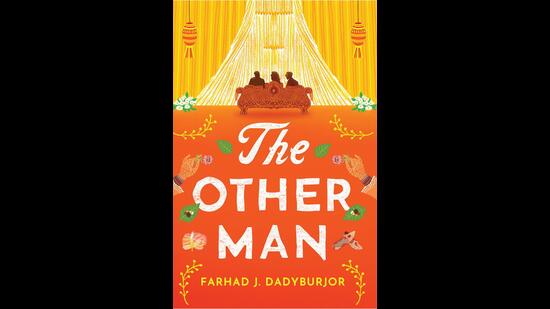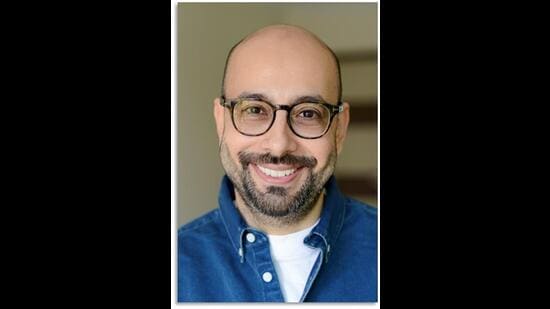Review: The Other Man by Farhad J Dadyburjor
While the novel holds up a mirror to Indian society where gay men marry straight women to fulfill their patriarchal duty, it is also refreshing in that the queer characters are not condemned to persecution
I have a soft corner for novels where queer characters are not condemned to persecution, where they get to experience joy and love alongside fear and despair, where their whole being is not reduced to their sexual orientation or gender identity. Farhad J Dadyburjor’s novel The Other Man works for me because it does all of this and quite well. Ved Mehra, the 38-year-old gay man, who is the protagonist of his novel, is depicted neither as a sinner nor as a victim. The author weaves a tale that is believable, compelling, and emotionally alive.


The book revolves around a set of interconnected love stories. The common thread across them is Ved, the scion of a rich business family in Mumbai. His parents dote on him. They are separated but, when it comes to their son’s well-being, they are on one team. They love him unconditionally. It is heartwarming to come across parents – in real life, and in fiction – who stand by their children and prioritize their happiness over social image and approval aka log kya kahenge.
There is a lot of mirch-masala in this novel before that happy ending (no pun intended). We meet Ved when he is nursing a broken heart after being dumped by Akshay, who has married a woman to keep up the pretence of heterosexuality. Ved is aghast that Akshay would do this to him. Akshay believes that marriage should not change anything between them. They can be friends and continue to have sex. At this point, Ved’s parents know nothing. The novel reflects how queer people often have to navigate grief without any emotional support.
Despite his self-righteousness, Ved ends up doing something quite similar. He agrees to marry Disha, a woman his parents introduce him to. They go on several dates and are about to get engaged at a big party. Ved leaves Disha to make the arrangements, pretending to be busy at work while he is secretly hooking up with Carlos – an American in India on a business trip. Carlos and Ved meet online through a dating app. Ved does not tell Carlos that he is engaged until much later in the book. Of course, Carlos is upset.
This plot holds up a mirror to what has been happening in Indian society for a long time. Gay men marry straight women, either of their own will or due to parental pressure, in order to produce sons and fulfill their patriarchal duty to continue the family line. No thought is given to the ordeal that wives go through in these marriages. While it is true that gay men experience harassment within their birth families, it is also true that many of them participate in making life a living hell for the unsuspecting women they marry. Gay rights activists do not speak about this much. Thankfully, Dadyburjor’s novel addresses the issue.
The author does an excellent job of showing Ved’s internal struggles. He does not want to do anything that will upset his parents and assumes they will be disappointed if they know he is gay. He wants to tell them but keeps postponing, imagining a number of scenarios that might come up if he does come out of the closet. Ved also feels guilty, perhaps more towards Disha than his parents. She has been extremely kind towards him. He thinks of her as a dear friend, so he does not want to lose her, but telling her would mean that the engagement would fall apart. He is petrified of losing Carlos as well, so he keeps his new lover in the dark.
Dadyburjor succeeds in making the reader root for Ved’s happiness and also feel miffed at him for lying to Disha and Carlos. The novel begins at a time when Section 377 of the Indian Penal Code is very much in place, so consensual sex between gay men is criminalised. By the time it ends, the colonial-era law used to harass gay men has been read down by the Supreme Court of India. Against this backdrop, the author does an excellent job of portraying the fear of being outed. Ved and Carlos are photographed at a gay party, and their intimate photographs are splashed in the media. India has a long history of predatory homophobic journalists invading queer people’s personal lives for sensational stories. Dadyburjor, who has worked as an entertainment and lifestyle journalist for over two decades, takes a critical look here at his own fraternity.

The book also has its set of magical moments between Ved and Carlos. Dadyburjor sends them to the Sea Lounge at the Taj Mahal Palace Hotel in Mumbai with “a sweeping view of the Gateway of India set against the turquoise-blue sea, with rows of bobbing boats that didn’t look larger than specks along the horizon.” Carlos hasn’t seen this side of Mumbai.
The most romantic part of the novel has Ved taking Carlos on a weekend trip to Alibaug. Since Carlos is American, Ved tells him, “My speedboat is waiting to take us to my Alibaug house. It’s like the Hamptons of Mumbai. You’re going to love it.” This scene reminded me of Alisha (Deepika Padukone) and Zain (Siddhant Chaturvedi) at the Alibaug beach house in Shakun Batra’s film Gehraiyaan. Just to be clear, Dadyburjor wrote the novel before the film.
The prose describing Ved and Carlos’ “long and languid lovemaking that began in the shower and ended in the tub” is as erotic as it is sublime, perhaps because the author himself is a gay man, not a straight person trying to imagine gay men having sex.
How does Carlos find it in himself to forgive Ved? What do Ved and Disha do? Read this book to find out. I think that it would make a brilliant film in the hands of a smart and sensitive filmmaker.
Chintan Girish Modi is an independent writer, journalist and book reviewer.
All Access.
One Subscription.
Get 360° coverage—from daily headlines
to 100 year archives.



HT App & Website






